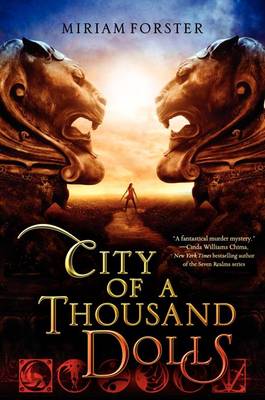Reviewed by nannah on
slavery
ableism
The City of a Thousand Dolls is a place where unwanted girls are raised to become wives, trained apprentices, healers, musicians, or at worst: sold as slaves. The MC, Nisha, was dropped off at the city gates by her parents when she was small, to be raised without a specialty and protected by the spotted cats under the city's protection (whom she communicated with telepathically). However, before the ceremony in which girls are spoken for, girls start to die under suspicious circumstances, and it's up to Nisha to figure out who's responsible.
The setting is lush and lovely, inspired by the cultures of South Asia. I'm white, and the author's white, so I can't say how accurate or respectful this is. In any case, I love the characters. They (and their emotions) feel very real and relatable. Especially Nisha, the MC. I found myself really drawn into her personal story and conflict.
The mystery, though. City of a Thousand Dolls tries to present itself as a mystery (when it feels more like a fantasy dystopian drama?). I'm not sure how successfully it came across, at least to me. Farther into the book, I began to get a little sick of someone crying, "Something terrible has happened!" preluding a death. Every. Single. Time.
The ableism also stung: "No one is physically imperfect in the Imperial Court. No one. It is the worst sign of weakness." "Only common people are cripples."
I get it. Dystopiaaaaaa. But it feels like disabled people are being targeted unfairly somehow? The last 5 books I've read have been so filled with ableism it's starting to make me worry that this is a new YA trend or something . . .
On the bright side, Nisha in the second half and one other secondary character have disabilities, and they are treated with respect and sensitivity by the author. It makes me believe that Miriam Forster herself is not ableist, but just the world the story takes place is. Anyway, I'm excited to see what Nisha does next.
Reading updates
- Started reading
- 5 July, 2015: Finished reading
- 5 July, 2015: Reviewed
